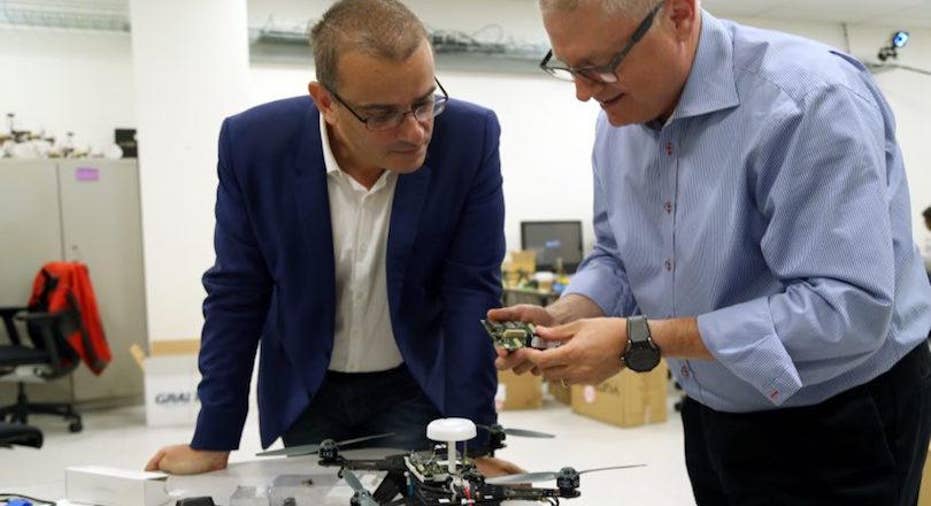Intel to Acquire Chip Maker Movidius

Intel is set to acquire Movidius, the computer vision start-up behind Google's Project Tango, the Flir thermal imaging camera, and other consumer products.
Intel says Movidius will help advance its RealSense platform—specifically augmented/virtual/merged reality, drones, robotics, and digital security cameras.
"With Movidius, Intel gains low-power, high-performance SoC [System on a Chip] platforms for accelerating computer vision applications," Josh Walden (pictured, right), senior vice president of Intel's New Technology Group, said in an announcement. "We see massive potential for Movidius to accelerate our initiatives in new and emerging technologies."
As part of Intel, chip-maker Movidius can innovate faster, according to CEO Remi El-Ouazzane (pictured, left).
"We will continue to operate with the same eagerness to invent and the same customer-focus attitude that we're known for, and we will retain Movidius talent and the start-up mentality that we have demonstrated over the years," he wrote in a blog post.
Co-founded in Dublin, Movidius specializes in low-power processor chips for computer vision. Earlier this year, it announced a partnership with Google, which uses Movidius's processors to help power advanced mobile technology.
Now, it will merge with Intel to help give "the power of sight to machines," El-Ouazzane said. Together, the firms' technology boasts "a winning combination for autonomous machines that can see in 3D, understand their surroundings, and navigate accordingly," he said.
Terms of the deal were not disclosed, but the acquisition is unlikely to affect Movidius's existing tie-ups with companies like drone maker DJI, Flir, Google, and Lenovo.
In April, California-based Movidius introduced the Fathom Neural Compute Stick, which, along with its Fathom deep-learning software framework, allows almost any Linux computer to handle advanced neural networks.
This article originally appeared on PCMag.com.



















